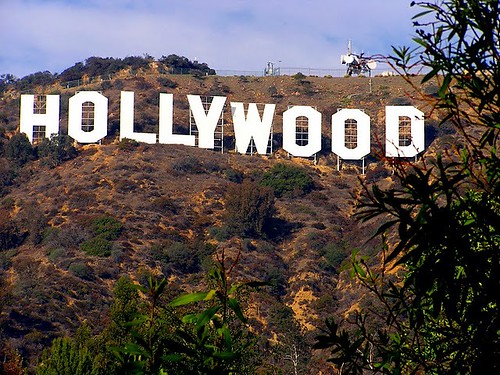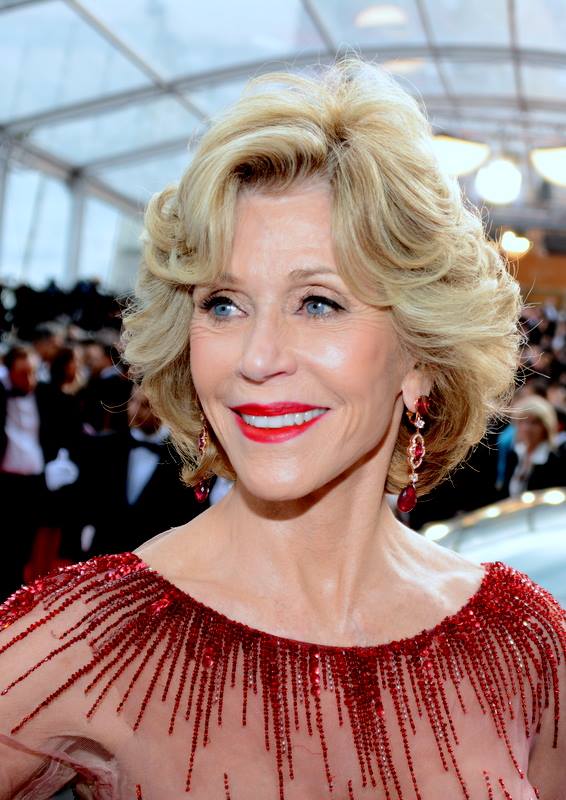
The allure of Hollywood is undeniably potent. For decades, the silver screen has captivated audiences, offering a glimpse into lives filled with glamour, critical acclaim, and unparalleled global recognition. Actresses, in particular, often find themselves at the epicenter of this dazzling world, where every role, every red carpet appearance, and every accolade contributes to a towering edifice of fame that seems perpetually to demand more. It’s a dream for many, an aspirational pinnacle that promises enduring celebrity and influence.
Yet, beneath the glittering surface of Tinseltown, there are stories less often told — tales of individuals who, after reaching the very zenith of their craft, made a conscious and often surprising decision to pivot dramatically, to step away from the relentless demands of the spotlight, or at least redefine their relationship with it. These aren’t stories of fading careers or forced retirements; rather, they are narratives of choice, of powerful women who, at the peak of their professional prowess, opted for new horizons. They chose to carve out different paths, leveraging their existing platforms for entirely new purposes, leaving an indelible mark that transcends their on-screen performances.
In a world obsessed with continuous visibility and career escalation, the decisions made by these exceptional women offer a fascinating counter-narrative. They remind us that true influence isn’t always measured by box office receipts or critical consensus, but by the courage to forge a different legacy. Join us as we explore the remarkable journeys of three such actresses who, at their very peak, chose to redefine what it means to be famous, embarking on new chapters that truly changed the game, and in many ways, never looked back at the exact kind of fame they once commanded.

1. **Grace Kelly: From Hollywood Royalty to Actual Royalty**Imagine being at the absolute top of your game, gracing the screens in some of the most iconic films of your era, winning the most coveted award in your industry, and being hailed as a fashion icon and an embodiment of grace. That was precisely the reality for Grace Kelly, an American actress whose career trajectory was nothing short of meteoric. The context highlights her extraordinary success, noting her roles in iconic films such as “High Noon,” “Mogambo,” and “The Country Girl.” It was for her compelling performance in “The Country Girl” that she earned an Academy Award for Best Actress, a definitive stamp of her undeniable talent and the critical recognition she commanded. Furthermore, her collaboration with the legendary Alfred Hitchcock in multiple thrillers cemented her status as a leading lady with a captivating on-screen presence and an unparalleled elegance that resonated deeply with audiences worldwide.
Her filmography alone painted the picture of a burgeoning legend, an actress who effortlessly navigated between intense dramas and the stylish suspense of Hitchcock’s masterpieces. At a time when Hollywood was the global dream factory, Grace Kelly was a genuine star, her name synonymous with talent and sophistication. She had achieved what many performers only ever dream of: critical adulation, commercial success, and a place among the most sought-after actors of her generation. Her beauty, poise, and acting chops made her a force to be reckoned with, and her career appeared destined for continued ascent, with countless more iconic roles seemingly waiting in the wings. Her peak was not just high; it was a breathtaking summit from which she surveyed a landscape of endless possibilities in entertainment.
However, the trajectory of Grace Kelly’s life took an unexpected, fairytale-like turn that saw her pivot from the dazzling lights of Hollywood to the regal responsibilities of European monarchy. The context explicitly states that Kelly “retired from acting early in her career to marry Prince Rainier III of Monaco and became Princess of Monaco.” This was no gradual winding down of a career; it was a definitive, public departure at a point when she was still very much a coveted star. The decision to leave Hollywood behind to assume the duties of a princess was a seismic shift, one that immediately removed her from the daily grind of film sets and red-carpet premieres, fundamentally altering the nature of her public identity.
Her new role as Princess Consort of Monaco was far from a ceremonial retirement into obscurity; instead, it ushered her into a different, equally high-profile public life. The context details her subsequent endeavors: “She dedicated herself to charity work, particularly supporting children and the arts, and founded the Princess Grace Foundation to assist local artisans.” This wasn’t merely a change of address; it was a complete re-channeling of her formidable energies and public platform. Her focus shifted from portraying characters on screen to fostering real-world impact through philanthropy, leveraging her royal status to champion noble causes. This commitment to charity work and cultural preservation became the cornerstone of her new public persona, demonstrating a profound sense of purpose beyond the entertainment industry.
In essence, Grace Kelly truly walked away from the kind of fame that came with being a leading Hollywood actress at her peak, embracing a new, equally prominent but fundamentally different role as a royal and a humanitarian. Her commitment to her new life was absolute, marking a definitive end to her acting career that saw her never look back at that specific chapter of her professional life. Her legacy, therefore, is a dual one: both a celebrated actress whose performances endure and a revered princess whose charitable work left a lasting impact, a truly unique case of redefining what a public figure can achieve beyond the silver screen. Her story stands as a testament to the power of choice and the profound impact of transitioning from one form of global influence to another.
Read more about: Gone But Never Forgotten: A Heartfelt Tribute to 11 American Icons Whose Lives Ended Too Soon

2. **Audrey Hepburn: From Screen Siren to Global Humanitarian**Audrey Hepburn, a British actress, stands as another indelible icon whose career reached stratospheric heights, solidifying her status as a film and fashion legend. Her journey to stardom was cemented with her groundbreaking role in “Roman Holiday,” a performance that wasn’t just critically acclaimed but historically significant, earning her an Oscar, a Golden Globe, and a BAFTA for a single performance. This immediate and profound recognition catapulted her into the highest echelons of Hollywood. She continued to enchant audiences in a string of immensely popular films, including the timeless classics “Sabrina,” “Breakfast at Tiffany’s,” and “My Fair Lady.” These roles showcased her unique blend of elegance, charm, and acting prowess, making her one of the most beloved and recognizable faces globally.
At her peak, Audrey Hepburn was more than just an actress; she was a cultural phenomenon. Her distinctive style set trends worldwide, influencing fashion for decades, and her on-screen presence radiated a captivating blend of vulnerability and strength. She was sought after by top directors and designers, her projects eagerly anticipated by millions. The sheer number of awards and the enduring popularity of her films attest to her immense success and the profound impact she had during her acting career. She was a quintessential leading lady, defining an era of cinematic grace and sophistication. Her fame was global, her image iconic, and her influence undeniable, marking a period of unparalleled professional triumph in the demanding world of film.
Yet, as her film career continued, a new calling began to emerge, one that would eventually see her significantly shift her focus from the demands of the movie industry to the urgent needs of the world’s most vulnerable. The context notes this profound transition directly: “Beyond her acting career, she devoted herself to humanitarian efforts with UNICEF, earning recognition for her contributions and posthumously receiving a Grammy Award for her spoken-word recordings.” This isn’t to say she entirely stopped acting overnight, but the emphasis shifts dramatically from her screen roles to her passionate commitment to a greater cause. Her choice to devote herself so fully to UNICEF wasn’t a casual endeavor but a deep, personal commitment that redefined her public identity.
This devotion to humanitarian work became her primary mission, a powerful pivot that leveraged her global recognition for significant social impact. She traveled extensively to some of the world’s most impoverished regions, using her voice and presence to advocate for children in need. Her celebrity, once primarily used to promote films, was now channeled into drawing attention to global crises and inspiring action. This dedicated period of her life demonstrated a clear re-prioritization, moving away from the relentless pursuit of acting roles as her main endeavor to actively engaging with profound global challenges. The fact that she earned recognition for these contributions, including a posthumous Grammy, underscores the magnitude and impact of her humanitarian work, placing it squarely at the forefront of her legacy.
Audrey Hepburn’s story is a beautiful testament to the idea of a renowned figure transitioning from a career of artistic achievement to one of profound social responsibility. While her film legacy remains evergreen, her later life as a UNICEF Goodwill Ambassador became an equally, if not more, defining aspect of her enduring fame. She utilized her peak influence to shine a light on critical global issues, effectively walking away from the constant pressure of being a full-time leading actress and embracing a role that allowed her to make a tangible difference in the world. Her decision showcases a powerful redefinition of success, proving that the most memorable contributions can often lie beyond the silver screen, leaving behind a dual legacy of both timeless cinema and selfless humanitarianism.
Read more about: Rewind to the Sixties: Unveiling 14 Legendary Actresses Who Defined an Era and Captured Hearts

3. **Emma Watson: From Magical Stardom to Activist and Advocate**Emma Watson burst onto the global stage at a remarkably young age, becoming an instant icon for an entire generation through her portrayal of Hermione Granger in the immensely popular “Harry Potter” film series. This role, which spanned a decade, not only garnered her critical acclaim but also embedded her image deeply in the fabric of global pop culture. Following the conclusion of the Harry Potter saga, she skillfully transitioned to diverse roles in successful independent films and blockbuster hits, proving her versatility and talent beyond the wizarding world. The context celebrates her as a “renowned English actress celebrated for her performances in both blockbuster hits and independent films,” further acknowledging that she “has garnered critical acclaim for her diverse roles in successful movies.” Her acting career was thriving, and she was clearly at a peak, leveraging her immense fame to choose impactful projects.
Her post-Potter career saw her continue to command attention, not just for her acting but for her thoughtful and intelligent approach to her craft. She demonstrated a keen eye for projects that resonated with her values, solidifying her reputation as more than just a child star who grew up. At this stage, she was a respected and award-nominated actress, holding a unique position of influence and recognition that few achieve. Her career was defined by a blend of artistic integrity and commercial success, ensuring that her voice, both on and off-screen, carried significant weight. She possessed an enviable platform, perfectly positioned to continue a conventional path of high-profile acting roles.
However, Emma Watson’s journey quickly revealed a deeper commitment to causes beyond the silver screen. While continuing to act, she began to make impactful contributions as a public intellectual and advocate, significantly shifting the primary focus of her public identity. The context highlights this pivotal aspect of her career: “She has also made impactful contributions as a UN Women Goodwill Ambassador, advocating for gender equality.” This wasn’t a sideline hobby; it was a serious dedication to a global cause, transforming her from solely an actress into a prominent voice for social change. This role involved significant public speaking, campaigning, and leveraging her platform to genuinely move the needle on important issues.
Beyond her work with the UN, Watson further diversified her influence by actively engaging with the fashion industry, but with a conscious purpose. The context notes, “Furthermore, she is actively involved in the fashion industry, endorsing sustainable brands and initiatives.” This demonstrates another deliberate pivot, where her involvement in a high-profile industry is tied to ethical considerations and advocacy for sustainability. She wasn’t merely a celebrity endorsing products; she was using her influence to promote responsible consumption and ethical practices, aligning her public image with meaningful environmental and social causes. This multi-faceted engagement in activism and conscious consumerism marked a significant departure from a career exclusively focused on acting.
Emma Watson’s trajectory showcases a powerful example of an actress who, at the peak of her fame, consciously chose to broaden her impact beyond the confines of acting. She effectively “walked away” from the expectation that her primary identity would remain solely as a film star, instead embracing a more holistic role as an activist, an ambassador, and a thought leader in ethical consumption. Her decision to champion gender equality and sustainable fashion, and to use her considerable platform for these causes, means she never looked back at a singular, acting-centric career. Her legacy is thus not only of a beloved cinematic character and talented performer but also of a committed global citizen who leveraged her fame for profound and lasting societal good, setting a new standard for celebrity influence in the modern age.
The stories of actresses who redefine their relationship with fame don’t stop there. Beyond the regal transformations and global advocacy we’ve already explored, there are other incredible women who, at the absolute height of their careers, pivoted in ways that were equally bold and impactful, shifting from being primarily performers to becoming powerhouses in advocacy, media, and entrepreneurial innovation. These narratives aren’t just about changing careers; they’re about reshaping entire public identities and demonstrating that true influence can manifest in myriad forms, far beyond the confines of a film set. Get ready to be inspired by three more trailblazers who, having conquered Hollywood, decided to build entirely new empires, never once looking back at the exact kind of fame they left behind.

4. **Jane Fonda: From Hollywood Legend to Unapologetic Activist**Jane Fonda, an American actress whose career has spanned an astonishing six decades, is nothing short of legendary. She’s graced the screens, stages, and televisions, delivering performances that have garnered her multiple prestigious awards, including two Academy Awards, two British Academy Film Awards, and a remarkable seven Golden Globe Awards. Her versatility is truly a sight to behold, as she effortlessly navigates between comedic genius and dramatic intensity, earning critical acclaim for iconic roles in films like “Klute” and “Coming Home.” At her peak, Fonda wasn’t just a star; she was a cultural touchstone, a household name whose work resonated deeply with audiences across generations, solidifying her status as one of the most respected figures in entertainment.
But beyond the glittering lights of movie premieres and award ceremonies, Jane Fonda cultivated an equally powerful and enduring identity: that of a fierce and unyielding activist. The context notes that, “Beyond her acting career, she is recognized for her activism and feminist advocacy, making valuable contributions to social causes and the entertainment industry.” This wasn’t a casual sideline; it was a profound re-commitment of her public platform and personal energy. Her fame, already immense from her cinematic achievements, was strategically channeled into amplifying critical messages and advocating for change, transforming her from simply an actress into a prominent and often provocative voice for social justice.
Her dedication to activism became a defining characteristic of her life, weaving an indelible thread through her public narrative. Fonda didn’t just lend her name to causes; she became an active, frontline participant, using her celebrity to draw attention to pressing social issues and challenge the status quo. This embrace of feminist advocacy and broader social causes demonstrated a significant shift in her focus, illustrating a powerful example of someone who consciously chose to expand her influence beyond performing, prioritizing impact over traditional career continuation.
What’s truly remarkable about Jane Fonda’s journey is the way her activism hasn’t simply been a phase, but an ongoing, evolving commitment that continues to shape her legacy. She effectively “walked away” from the expectation that her primary identity would always be tied solely to her acting roles, instead establishing herself as an enduring advocate whose voice carries immense weight. Her powerful pivot illustrates how a star’s platform can be leveraged for profound societal good, proving that the most impactful roles can often be found off-screen, a testament to her unwavering conviction and a legacy that continues to inspire.

5. **Lucille Ball: From Queen of Comedy to Studio Empire Builder**When you think of Lucille Ball, you instantly conjure images of the iconic red-headed comedian who brought joy to millions through her groundbreaking work. Described as a “renowned American actress, comedian, producer, and studio executive,” her early career was a whirlwind of success across modeling, Broadway, films, and television. But it was her co-creation and starring role in the beloved sitcom “I Love Lucy” that cemented her place in television history. At a time when women were rarely afforded such creative control, Ball was already a trailblazer, showcasing a unique blend of comedic timing, physical comedy, and business acumen that made her a household name and a true queen of comedy.
However, Lucille Ball’s most revolutionary move wasn’t just her on-screen brilliance; it was her monumental shift into the executive suite, a pivot that profoundly reshaped the landscape of television production. The context highlights this unprecedented achievement: she “later became the first woman to lead a major television studio, Desilu Productions.” This wasn’t a gradual transition; it was a bold, definitive step into a realm traditionally dominated by men, transforming her from a beloved performer into a formidable media mogul. Taking the reins of Desilu after her divorce from Desi Arnaz, she became the singular driving force behind a major Hollywood studio, making decisions that influenced countless shows and careers.
Under her leadership, Desilu Productions thrived, becoming a powerhouse that produced not only her own continued hits like “The Lucy Show” and “Here’s Lucy,” but also iconic series such as “Star Trek” and “Mission: Impossible.” This was a clear demonstration that Ball’s talents extended far beyond acting; she possessed an extraordinary vision for the industry and the executive capability to execute it. Her role as a studio executive, earning her “numerous awards and accolades along the way,” was a testament to her pioneering spirit, effectively walking away from the primary identity of solely being an actress to embrace the formidable responsibilities of a media leader.
Lucille Ball’s legacy, therefore, is not just that of a comedic genius, but of a groundbreaking businesswoman who shattered glass ceilings and redefined what a woman could achieve in Hollywood. She leveraged her peak fame and unparalleled understanding of television to build an empire, demonstrating that her influence could be even greater behind the camera than in front of it. Her decision to take control of Desilu Productions ensured she never looked back at a career confined to performing, instead leaving an indelible mark as a true innovator and a powerful architect of modern television.

6. **Gwyneth Paltrow: From Oscar-Winning Actress to Lifestyle Guru**Gwyneth Paltrow’s journey to stardom was marked by both critical acclaim and commercial success, establishing her as a versatile American actress. She captivated audiences with her performances in “mid-budget and blockbuster films,” earning significant recognition for movies like “Shakespeare in Love” and “The Talented Mr. Ripley.” Her career saw a notable resurgence with her role as Pepper Potts in the Marvel Cinematic Universe, a role that brought her to a new generation of fans. She also made her mark in television, appearing in popular series such as “Glee” and “The Politician.” At her peak, Paltrow was a highly visible and respected actress, adept at navigating both independent dramas and major franchises, holding a prominent place in Hollywood.
However, Gwyneth Paltrow embarked on a bold and transformative career pivot that saw her shift from being primarily a screen star to a pioneering force in the lifestyle industry. The context explicitly states, “Additionally, she is the founder and CEO of the lifestyle brand Goop.” This wasn’t just a side project; it was a full-fledged entrepreneurial venture that fundamentally redefined her public identity. Goop, launched in 2008, began as a weekly newsletter offering travel tips and health advice, quickly growing into a multi-million-dollar empire encompassing e-commerce, publishing, podcasts, and even a Netflix series.
This transition wasn’t merely about attaching her name to products; it was about building an entirely new brand and business from the ground up, with Paltrow at its helm as CEO. She essentially “walked away” from the traditional trajectory of a leading actress, choosing to channel her energy, influence, and business acumen into creating a new kind of platform. Her entrepreneurial spirit became as much a part of her public persona as her acting prowess, demonstrating a clear re-prioritization that leveraged her celebrity for a very different kind of impact and engagement with the public.
Gwyneth Paltrow’s venture with Goop solidified her role as a businesswoman and lifestyle guru, proving that her vision extended far beyond the confines of a film set. The context also notes her “receiving recognition for her contributions to spoken word albums and documentaries,” further illustrating her diverse post-acting interests and ventures. She never looked back at a career defined solely by acting, instead forging a new path that saw her become an influential figure in wellness, fashion, and media. Her story is a testament to the power of reinvention, showcasing how a celebrity at their peak can successfully innovate and build a lasting legacy that transcends their original fame.
These remarkable women—Grace Kelly, Audrey Hepburn, Emma Watson, Jane Fonda, Lucille Ball, and Gwyneth Paltrow—each chose to chart a course less traveled, stepping away from the traditional glare of Hollywood fame at their professional peaks. Their stories aren’t just fascinating anecdotes; they are powerful lessons in redefining success, purpose, and impact. They show us that the true measure of influence isn’t always found in continuous visibility or the accumulation of accolades, but in the courage to pursue new passions, leverage platforms for greater good, and carve out a unique, enduring legacy. In a world constantly demanding more from its stars, these actresses dared to demand more from themselves, proving that sometimes, walking away is the most powerful career move of all, and in doing so, they truly never looked back. Whether transforming into royalty, global humanitarians, fierce activists, media titans, or lifestyle pioneers, their journeys remind us that the spotlight can be repurposed, and a peak can be just the beginning of an even more extraordinary climb.



